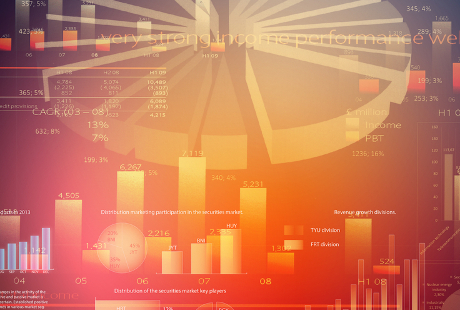In May of this year, market researcher Ipsos MORI and mobile telco EE found themselves on the front page of the Sunday Times, getting the wrong kind of coverage.
The paper compared an agreement between the two companies, which would allow the pollster to access anonymised, aggregated customer data from the telco, to the deeply unpopular "Snooper's Charter".
But six months previously, Telefónica Digital – the innovation arm of the European telecommunications giant – had made a very similar announcement, with little privacy backlash.
The company's SmartSteps service, the first to be launched by its Dynamic Insights business analytics division, allows retailers to measure footfall in their stores, based on trends extrapolated from anonymised and aggregated mobile network data from Telefónica's customers.
According to Steven Bartholomew, director of public affairs at Telefónica Digital, one difference between the two companies' announcements was the degree to which his company engaged with the community.
"it was really important for us to be open and transparent about what we were doing," he says. "We spoke the Information Commissioner in advance and showed them the product; we joined the UK Anonymity Network; we had academics review the product."
"As a consequence, there wasn't the negative reaction that EE encountered," Bartholomew explains. "The lesson is that there are sensitivities.
"Companies that want to unlock the value in data need to be able to demonstrate that they can do it in a way that preserves privacy."
This objective – to build what Bartholomew describes as "digital confidence" – also informs the company's open innovation strategy, he says.
Later this year, Telefónica Digital will be hosting a "datathon" at Campus Party, the technology festival the company is throwing at the O2 arena.
It has collaborated with the Open Data Institute to develop a competition, encouraging programmers to use open data to build "solutions that benefit society".
The competition, he says, is motivated in part by a desire to prove that "anonymous and aggregated data can be used in a smart and responsible way", Bartholomew says.
Earlier this week, Telefónica Digital was announced as one a number of IT and telecommunications firms to have officially joined the ODI.
According to Bartholomew, joining the ODI help the company learn what open data sets are available for reuse, and how they might be combined with Telefónica's own data to create valuable products and services.
"The ODI will bring cutting edge insights to the table, and a greater awareness of what open data sets are out there," he says. "That could take us in a number of dirctions."
There is also the possibility that some of the open data-based start-ups that the ODI is incubating might one day join Telefónica Digital's start-up accelerator, Wayra.
"When you've got an accelerator like Wayra, you want to find the people with the best ideas and the best business plan," says Bartholomew. "If the ODI can help us identify some really promising companies, then that benefits us, it benefits the ODI, and it benefits those companies."







